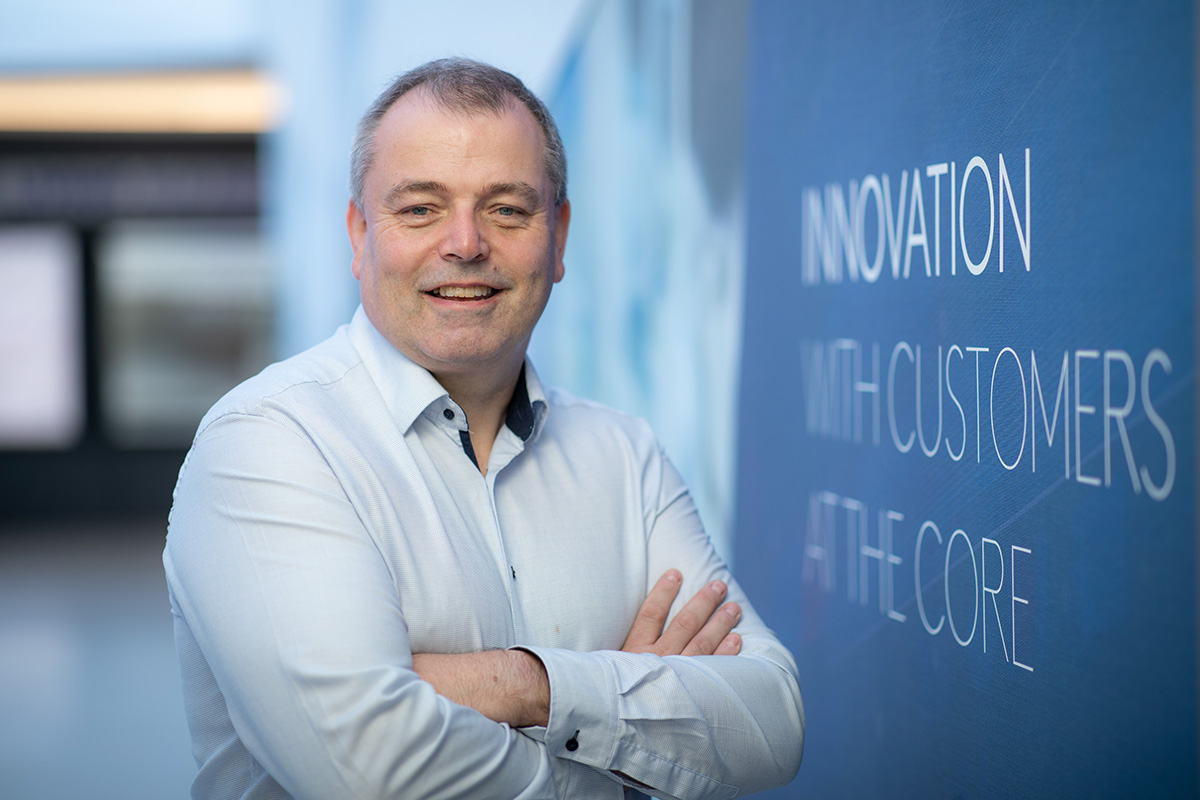
Can you give us a sense of your time at NUI Galway and the impact this time and the education you received has had on your life?
I went to college in Galway, UCG as it was known at the time, and I lived there for a long time thereafter in the mid 1980s. The recession meant we didn’t have a lot and I often wonder how we actually managed to make our way through university from a financial point of view. I have lots of good memories though; lots of studying, obviously, but a lot of socialising.
I got the points to do a degree in science. I had always liked science and mathematics – I had a very good science teacher, also a former graduate of NUI Galway, Austin Egan, and he nurtured a lot of the science and the mathematical interest in me. I started out doing a general degree and gravitated towards physics. We were very lucky to have great quality tutoring, teaching, and interaction in the Department of Physics from people like Frank Imbush, Philip Walton, Jerry Jennings, Jim Larkin and Tom Glynn. The quality of the teaching and knowledge you get with a Physics degree really stays with you.
I went to work for Digital in Galway for a number of years after I graduated then joined Kingspan after working for couple of other companies in the wider electronics and PC industries.
What are the greatest challenges the world faces in terms of sustainability and how is Kingspan addressing these challenges?
I think there are there are two fundamental challenges. One is around how do we reduce carbon dioxide emissions; how do we take down CO2 emissions and how do we do that rapidly? This is the whole focus of our decarbonisation agenda.
The second significant challenge is around resource depletion and the need to move from the traditional linear economy to a more circular economy. We are engaged in a number of programs focused on extending the life of the products that we have in buildings. We are at early stages around designing for re-use, for example, how a product can be re-used in another application or in a best case, how the building can be re-done.
Another challenge in relation to embodied carbon is that there are more buildings standing in the world today than will be built between now and 2050 and they are going to require substantial re-work to bring them up to standard. That’s a huge challenge in itself, because everything from the shape of the building, the historical heritage, perhaps, and many other aspects have to be taken into account. The whole retrofitting of buildings is another huge challenge under both the decarbonisation and circularity headings.
How important is STEM education for society in your opinion?
I’m biased because of my science background. I’ve spent all of my career working within an engineering environment, probably closest to industrial engineering. In my current role, we spend huge amounts of times working on organic chemistry, inorganic chemistry and now in the more natural biochemistry.
Generally speaking, no matter what role you end up working in across industry, having the knowledge of science and mathematics is invaluable because it teaches you to analyse, to organise your thoughts and to understand the background to problems. It helps you to reach a conclusion in terms of solving the problem, and I think you can apply that to anything.
Could you talk a little bit about leading and managing people – how you set the agenda in your own role and how you lead people?
We have a very a divisionalised structure across the world – we have 170 facilities and 18,000 people, and we continue to grow, and so the organisation is quite decentralised, which allows for a lot of local focus.
In an organisation of that size with that local focus, there’s a lot of cross-cultural interactions, which is always fascinating for me. A book I read recently called The Culture Map by Erin Meyer focuses on understanding people and understanding cultures, which is at the heart of how you try to manage the business and situations.
Being able to lead from a participatory perspective is really important for me. The old command and control autocratic style – if it’s not gone, it’s at the door. Certainly, in an innovation role, you can’t have that because you’re really relying on people’s creativity and people’s ability to think about a solution – so you have to encourage that.
What are you most proud of in your career?
I grew up in a small place in Curry in County Sligo and went to school in Charlestown Co Mayo. There were six of us in my family and we didn’t really have a lot, to be honest, so I’m very happy with lots of things that we‘ve done. Obviously, there’s always, along with all the good things, a mixture of things that you regret and things that, if you had the chance to do it again, you would do it differently, but you get one chance and one shot and you have to take the best shot at that and move on. That’s what I’ve tried to do.
The thing of greatest achievement for me personally, is having seen people that worked with me and for me grow, develop and take on much more responsibility in their lives and in their careers than they did before they met me.
I’ve built factories from Czech Republic to Romania, I built the IKON Centre in Co Cavan, but the reality is, it’s all about people. I know that’s a cliche but for me, if the teams that I’ve worked with have ended up feeling better, doing better and be a bit more inspired, that’s the most important thing for me.